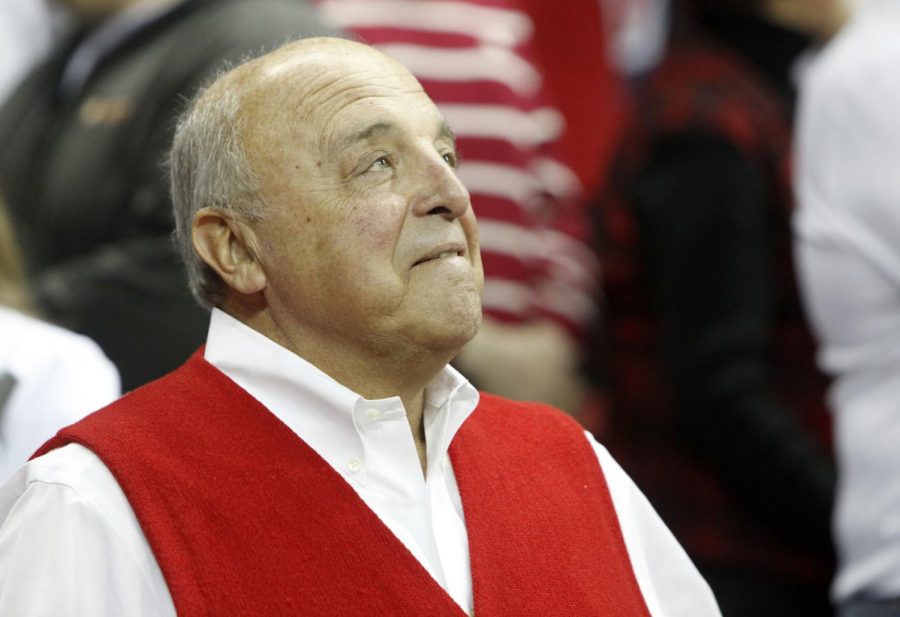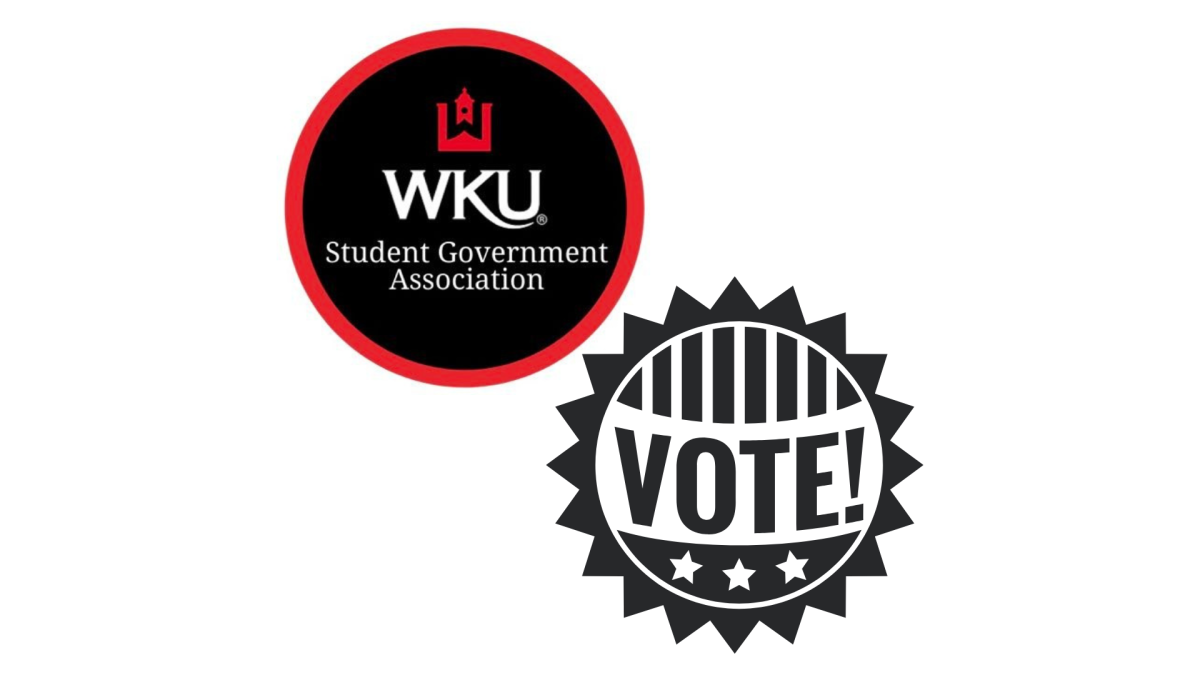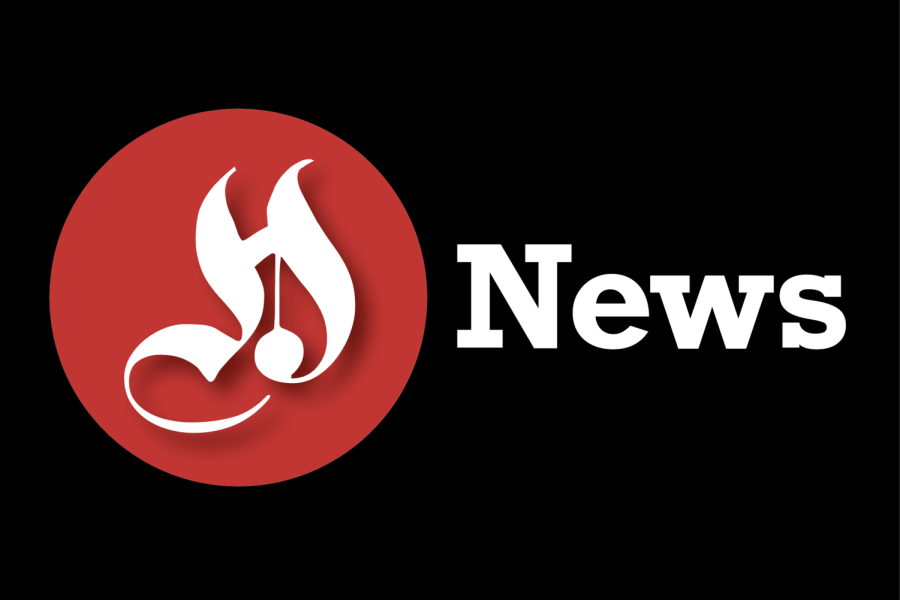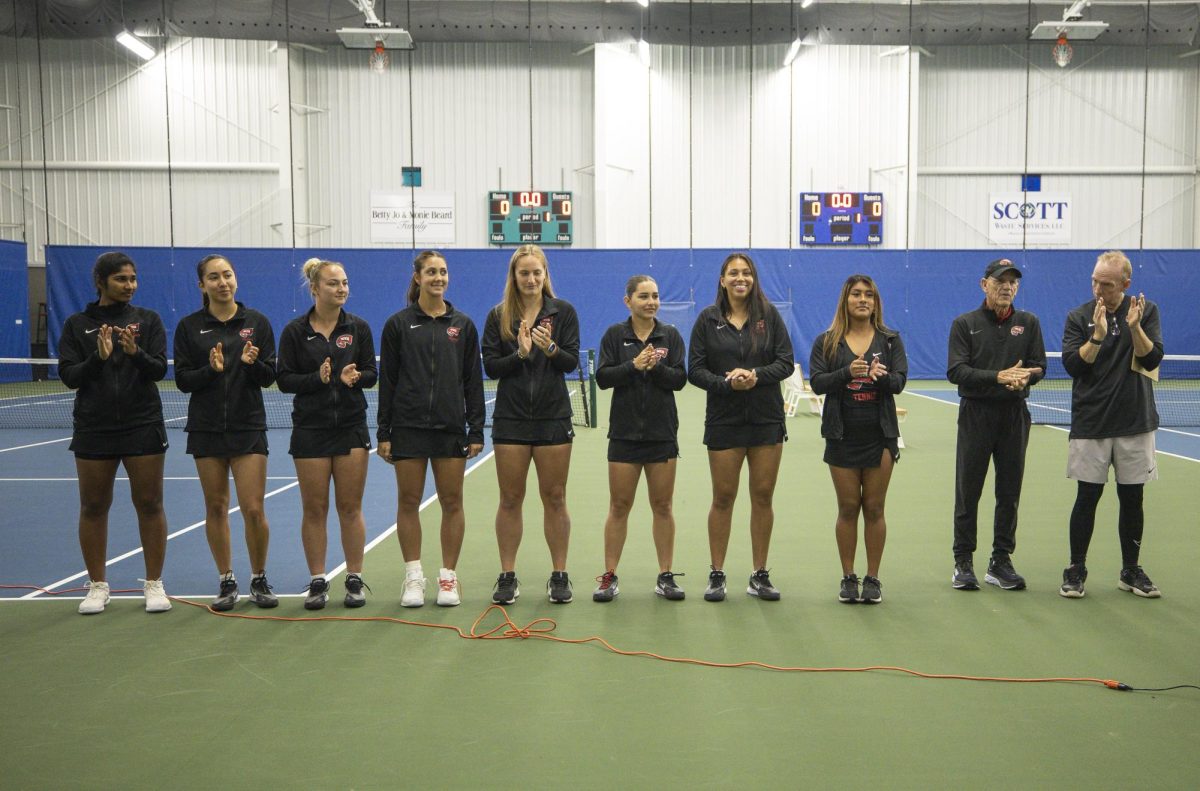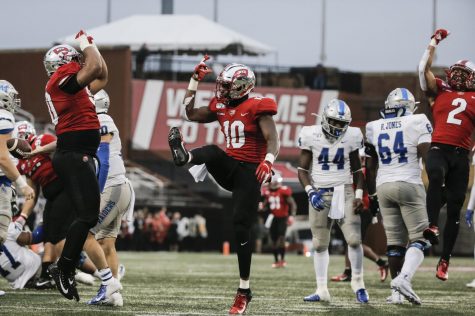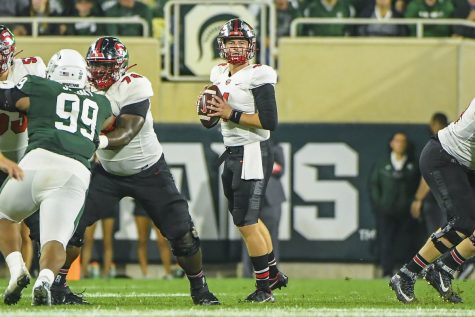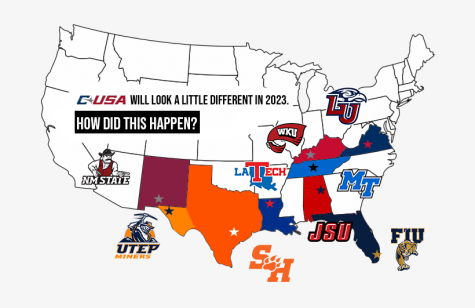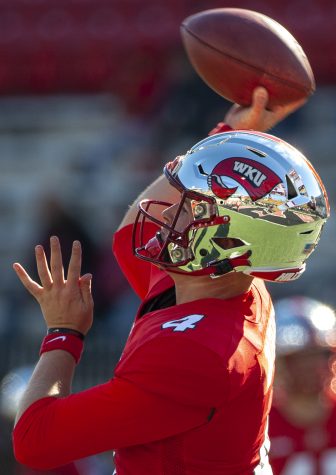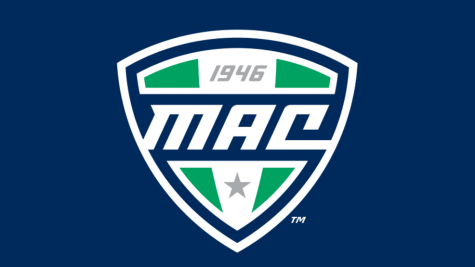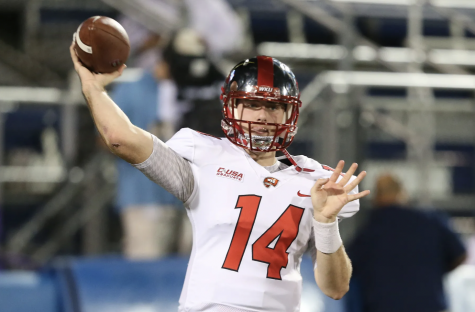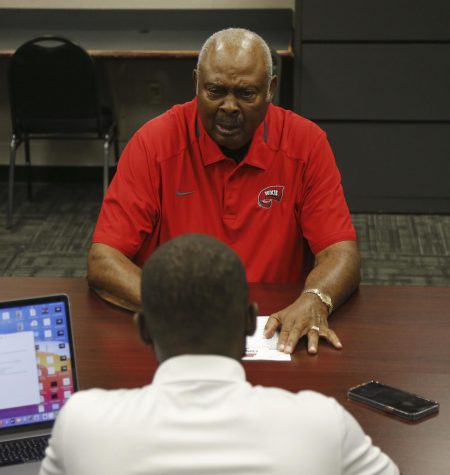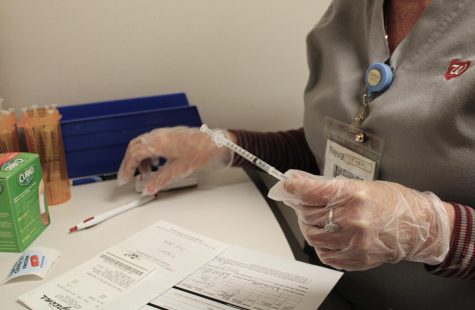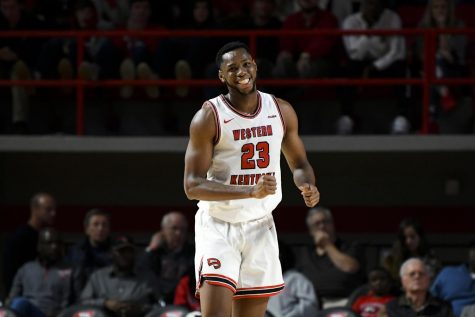Timeline: Barry Alvarez’s storied career at UW as a coach, athletic director
March 29, 2021
1990: Notre Dame defensive coordinator and assistant head coach Barry Alvarez is hired by Pat Richter to become UW’s 27th football coach. He signs a four-year contract that calls for a starting 11-month base salary of $110,000 annually.
1993: UW goes 10-1-1, culminating with a Rose Bowl win against UCLA. Brent Moss becomes the Badgers’ first Big Ten MVP since 1962.
1993: Alvarez is named Big Ten Coach of the Year and the Bobby Dodd Foundation National Coach of the Year.
1994: Richter completes work on a contract that will “lock up” Alvarez for the duration of his coaching days, paying the coach an annuity agreement worth $1 million if he stays in Madison for 15 years. His base salary is $130,501 with perks raising the package to $400,000.
1996: Ron Dayne signs to play for UW. He finishes his freshman year by rushing for 2,109 yards. The Badgers finish 8-5 and beat Utah in the Copper Bowl.
1998: An internal UW audit reveals Alvarez and other athletic department employees received reimbursements from booster club accounts between 1993 and ‘97 that were in apparent violation of NCAA rules.
1998: Alvarez is named the Big Ten Coach of the Year as the Badgers are co-champs of the conference and defeat UCLA in the Rose Bowl.
1999: Alvarez gets his 66th win, making him the winningest football coach in UW history.
1999: The Badgers finish 10-2 and become the only Big Ten team to win back-to-back Rose Bowls as they defeat Stanford.
1999: Ron Dayne wins the Heisman Trophy after becoming the all-time NCAA rushing leader.
2000: Alvarez tells Ron Wolf he is not interested in pursuing the coaching vacancy with the Green Bay Packers.
2000: Alvarez is named UW’s associate athletic director for football operations.
2000: The NCAA suspends 26 of Alvarez’s players for having accepted improper discounts from The Shoe Box, a discount retail store in Black Earth. Alvarez shuffles his lineup during the first four games. On the day the suspensions are announced by the NCAA, Alvarez says, “This may be the longest day I’ve ever had to go through in coaching.”
2001: Alvarez calls Miami (Fla.) athletic director Paul Dee to express interest in the school’s coaching vacancy.
2001: Alvarez agrees to a contract extension with UW, saying he plans to finish his coaching career with the Badgers.
2001: In the process of investigating the Shoe Box scandal, UW officials found Alvarez and his staff helped numerous recruits make temporary housing arrangements. That practice violates NCAA bylaw 13.2.1, which prohibits staff members from making such arrangements for prospects.
2002: Jack W. Kellner and Ted Kellner donate $10 million to the university, $6 million of which will go toward the Camp Randall Renovation project.
2003: Richter announces he will retire as athletic director April 1, 2004 and names Alvarez to replace him while continuing to be football coach.
2004: Alvarez gets his 100th win as UW coach in a game against Central Florida.
2005: The Badgers lose to Georgia 24-21 in the Outback Bowl.
2005: Alvarez announces the 2005 season will be his last as coach and Bret Bielema will become the new coach in 2006.
2006: Alvarez retires from coaching and shifts to solely being UW’s athletic director.
2006: Alvarez’s autobiography “Don’t Flinch” is published.
2008: Alvarez is named the Big Ten Club’s person of the year.
2009: Alvarez is named to the State of Wisconsin Athletic Hall of Fame and the Rose Bowl Hall of Fame.
2010: Alvarez spearheads the launch of Badgers Give Back, a community relations platform for student-athletes.
2012: LaBahn Arena opens, giving Badgers women’s hockey a separate rink.
2012: Alvarez hires Gary Andersen to replace Bielema.
2013: Alvarez coaches his last Rose Bowl game, a loss to Stanford, after Andersen left the program.
2014: The Stephen M. Bennett Student-Athlete Performance Center, a training hub for athletes of multiple sports, opens.
2014: Alvarez hires Paul Chryst to replace Andersen.
2015: Alvarez coaches Badgers to Outback Bowl win in final career game.
2019: Kohl Center renovation planned, calling for the creation of a student-athlete hub, among other additions.
2020: Alvarez serves on multiple Big Ten committees to help navigate the conference’s decision to cancel the football season, then bring it back during the COVID-19 pandemic.
2021: Badgers women’s hockey team wins NCAA championship in overtime, marking the 16th team national title won in Alvarez’s tenure.
Photos: Looking back at Barry Alvarez’s career at UW


